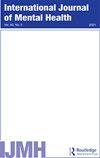评估精神病学住院医师项目网站内容
IF 1.7
Q3 PSYCHOLOGY, CLINICAL
引用次数: 2
摘要
摘要目的当精神科住院医师申请住院医师时,许多人会使用项目网站来了解有关该项目的信息。在这项研究中,对网站的内容进行了全面性评估。方法使用研究生医学教育认证委员会(ACGME)2020年住院医师项目列表,对255个住院医师培训网站进行了识别和评估。分析的类别包括项目概述、申请信息和招聘以及教育机会。所有项目网站都通过描述性统计进行了评估。结果对网站内容的分析发现,大多数网站包括项目的总体概述(99.2%),但很少包括轮换时间表(43.9%)、实习生职位数量(42.0%)、多样性和包容性声明(39.2%)以及过去住院医生的雇主(21.2%)。由于新冠肺炎,申请人将通过网站获得大量信息。这只会使网站定期更新并提供全面信息以做出明智决策变得更加重要。本文章由计算机程序翻译,如有差异,请以英文原文为准。
Evaluating psychiatry residency program website content
Abstract Objective When psychiatry residency applicants apply for residency, many use program websites to learn information about the program. In this study, the content of websites was evaluated for comprehensiveness. Method Using the Accreditation Council for Graduate Medical Education (ACGME) list of residency programs for 2020, 255 residency training websites were identified and evaluated. The categories analyzed included program overview, application information and recruitment, and educational opportunities. The program websites were all evaluated via descriptive statistics. Results Analysis of the content on the websites found that a majority included a general overview of the program (99.2%), but fewer included a rotation schedule (43.9%), the number of trainee positions (42.0%), a diversity and inclusion statement (39.2%), and the employers of past residents (21.2%). Conclusion Psychiatry residency website have room for improvement. Due to COVID-19, applicants will obtain a large amount of information via websites. This only makes it more critical that websites are regularly updated and provide comprehensive information to make informed decisions.
求助全文
通过发布文献求助,成功后即可免费获取论文全文。
去求助
来源期刊

INTERNATIONAL JOURNAL OF MENTAL HEALTH
PSYCHOLOGY, CLINICAL-
CiteScore
3.80
自引率
20.00%
发文量
32
期刊介绍:
The official journal of the World Association for Psychosocial Rehabilitation, the International Journal of Mental Health features in-depth articles on research, clinical practice, and the organization and delivery of mental health services around the world. Covering both developed and developing countries, it provides vital information on important new ideas and trends in community mental health, social psychiatry, psychiatric epidemiology, prevention, treatment, and psychosocial rehabilitation.
 求助内容:
求助内容: 应助结果提醒方式:
应助结果提醒方式:


